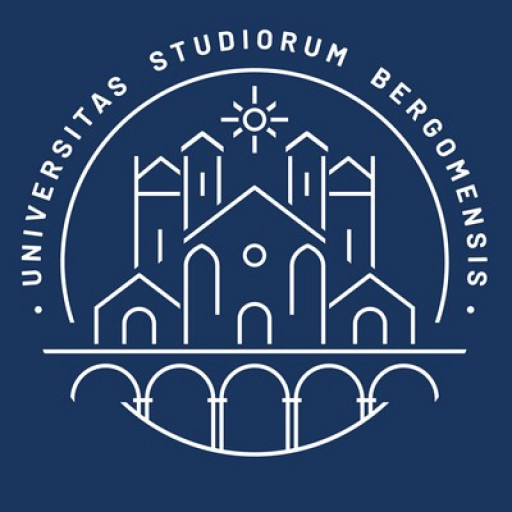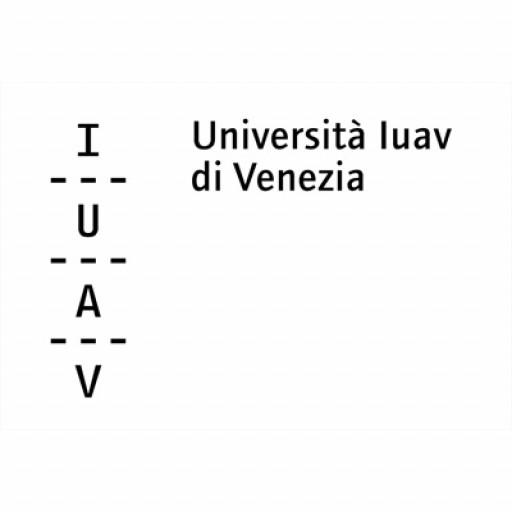Photos of university
The Urban Affairs and Planning program at the University of Pittsburgh offers a comprehensive education for students interested in shaping sustainable, vibrant, and equitable cities. This multidisciplinary program combines principles from geography, sociology, economics, political science, and environmental studies to prepare students for careers in urban planning, policy analysis, community development, and public administration. Students will explore topics such as land use, transportation systems, housing, environmental sustainability, social justice, and economic development, gaining both theoretical knowledge and practical skills through coursework, research projects, and fieldwork opportunities. The program emphasizes critical thinking, data-driven decision-making, and community engagement, encouraging students to develop innovative solutions to complex urban challenges. Graduates of the program are well-equipped to work with government agencies, non-profit organizations, private sector firms, and community groups to improve urban quality of life and promote sustainable development. The curriculum includes opportunities for internships, collaborative research, and participation in planning studios, allowing students to apply their learning in real-world contexts. An interdisciplinary approach ensures that students understand the interconnectedness of social, economic, and environmental factors affecting urban areas. The program prepares graduates for entrance into competitive planning and policy roles and continues to foster lifelong learning and leadership in urban affairs. With a dedicated faculty composed of experienced practitioners and scholars, students receive mentorship and guidance to pursue their academic and professional goals. The University of Pittsburgh’s strong ties to the Pittsburgh community and its commitment to urban innovation make this program an ideal choice for students passionate about making a positive impact on cities and communities worldwide.
- PIA 2109 – REBUILDING AND BUILDING US PUBLIC INFRASTRUCTURE
- PIA 2125 – CITY AND REGION THEORY AND PRACTICE (required)
- PIA 2145 - BENEFIT COST ANALYSIS
- PIA 2164 - NATURAL RESOURCES GOVERNANCE AND MANAGEMENT
- PIA 2501 - DEVELOPMENT POLICY AND ADMINISTRATION (if not used toward core)
- PIA 2509 - PROJECT MANAGEMENT
- PIA 2510 - ECONOMICS OF DEVELOPMENT
- PIA 2551 - GENDER AND DEVELOPMENT
- PIA 2608 - DEVELOPMENT ASSISTANCE: POLICY, THEORY AND PRACTICE DC SEMESTER
- PIA 2609 - GLOBAL SUSTAINABILITY AND PUBLIC POLICY DC SEMESTER
- PIA 2705 - NEIGHBORHOOD AND COMMUNITY DEVELOPMENT
- PIA 2715 - GIS FOR PUBLIC POLICY (required)
- PIA 2096 - CAPSTON SEMINAR: Urban Public & Nonrprof Mgmt./Research (if not used toward core)
- PIA 2096 – CAPSTONE SEMINAR: Poverty and Human Development (if not used toward core)
Requirements
Online Application. Complete and submit the online application in its entirety. All application materials can be submitted electronically using the online system, with the exception of academic transcripts.
Application Fee. The non-refundable $50 application fee may be paid by check or credit card. You will be prompted to pay the fee at the end of the online application process. The application fee is waived for Returned Peace Corps Volunteers, AmeriCorps Volunteers, Truman Scholars, Pickering Fellows, Coro Fellows, Rangel Fellows, McNair Fellows, Teach for America alumni, City Year alumni, Payne Fellows, Catholic Volunteer Network alumni, and veterans/active duty members of the US Armed Forces.
Early Application Discount: Prospective students who submit a complete online application for fall-term admission by December 31 of the previous year pay a reduced application fee of $25.
Résumé. All applicants should upload a current résumé/curriculum vitae, showing relevant awards, academic achievements, full- and part-time job experience, internships, and volunteer work.
Personal Essay. Introduce yourself to the admissions committee. Discuss your professional goals and why you feel a GSPIA degree can help you attain them. Describe your background, interests, and motivation for pursuing graduate work in public & international affairs. There is a 5,000 character limit (approximately two double-spaced, typed pages).
Second Essay (PhD applicants only – not required for master’s or non-degree candidates). Identify the broad topic and research questions you envision as the focus of your doctoral dissertation research, as well as the methodologies you intend to use. There is a 5,000 character limit (approximately two double-spaced, typed pages).
Optional Essay. If there are any special circumstances you would like the admissions committee to consider, highlight them in the optional essay. Use this essay to include any information that you feel is important, but that you were not able to include elsewhere on the application. There is no penalty for leaving this blank.
GRE or GMAT Scores (not required for MPPM and non-degree applicants). All applicants to the MPA, MPIA, MID, and PhD programs must have taken the GRE or GMAT within five years of the date of their application. It is not necessary to take both exams; either test score may be submitted. Official score reports must be sent directly from the testing agency to GSPIA. (GRE test takers can order score reports online at www.gre.org. GMAT test takers can order reports at www.mba.com). Copies of your own score report are not acceptable. GSPIA’s institutional code is for the GRE 2574.
Exceptions: Students applying to GSPIA’s joint-degree program with the University of Pittsburgh School of Law may substitute an LSAT score in lieu of the GRE.
TOEFL/IELTS Scores (international students only). International applicants must submit either the TOEFL or the IELTS. Contact Educational Testing Services directly to request that an official score report be sent to GSPIA. The minimum TOEFL score required for admission is 80 on the Internet-based test, although 90 or above is strongly preferred. The minimum IELTS score required for admission is 7.0 (overall, and in each of the subsections). GSPIA’s institutional code is 2574.
Exceptions: International students who completed a degree at a regionally accredited college or university in the United States are not required to submit a TOEFL/IELTS score. Students from certain English-speaking countries are also exempt (see this link for a list of exempt countries). All US citizens and permanent residents are exempt.
Academic Transcripts. When completing the online application, you will be asked to upload copies of official transcripts from all colleges and universities you have attended, whether or not you earned a degree. You should upload a scanned copy of an official transcript generated by your university’s registrar’s office. Self-reported transcripts, student grade reports, or copies of unofficial transcripts are not acceptable.
It is not necessary to submit hard copies of your transcripts at the time of application, as long as your scanned copies have uploaded successfully. If you are admitted, you will then be required to submit final, official transcripts directly from your university’s registrar’s office to GSPIA. The official copy must exactly match the scanned copy that you submitted at the time of application.
If you do not have access to technology that will allow you to submit a scanned copy of your transcript at the time of application, you may submit an official copy instead. The official copy must be sent by mail directly from your university’s registrar’s office to GSPIA (3601 Posvar Hall; Pittsburgh, PA 15260).
Two Letters of Recommendation. Letters should be written by professors who have taught you or supervisors who have overseen your work, either professionally or in a volunteer capacity. If you graduated from college less than three years ago, at least one, if not both, of your letters should be from professors. Letters written by friends, family members, work colleagues, or anyone who has not taught or supervised you are not acceptable.
All letters must be submitted online. When you complete the online application, you will be prompted to enter the names and email addresses of your recommenders. The system will automatically send them an email explaining how they can upload their letters.
Scholarships
- Global Education
- GSPIA-Based Funding
- University-Based Funding
The University of Pittsburgh offers a comprehensive program in Urban Affairs and Planning designed to prepare students for leadership roles in shaping sustainable, equitable, and vibrant urban environments. The program emphasizes interdisciplinary approaches, integrating principles from architecture, public policy, environmental studies, and social sciences to address complex urban issues. Students explore topics such as urban development, transportation, housing, land use planning, environmental sustainability, and community engagement. The curriculum combines theoretical foundations with practical application through studio work, case studies, internships, and research projects. Graduates of the program are equipped with analytical skills, strategic thinking, and professional expertise necessary to work in government agencies, non-profit organizations, consulting firms, and private sector companies involved in urban planning and policy development. The program also offers specializations and electives that allow students to tailor their education to specific interests within urban affairs, such as historic preservation, urban design, environmental management, or global urbanization. Faculty members are distinguished scholars and practitioners who provide mentorship and real-world insights. The program promotes experiential learning through partnerships with local government and community organizations, fostering opportunities for students to participate in urban projects that impact Pittsburgh and other cities. The university's strong research centers and institutes, including resources dedicated to urban studies and sustainability, enhance academic inquiry and policy analysis. Students are encouraged to engage with current urban challenges through seminars, conferences, and publication opportunities. Upon graduation, students are prepared to contribute innovative solutions to urban problems, influence policy, and pursue advanced research or doctoral studies in related fields. The program supports diversity, inclusion, and equity, aiming to develop professionals who can address the needs of diverse urban populations and promote social justice in urban development initiatives.









